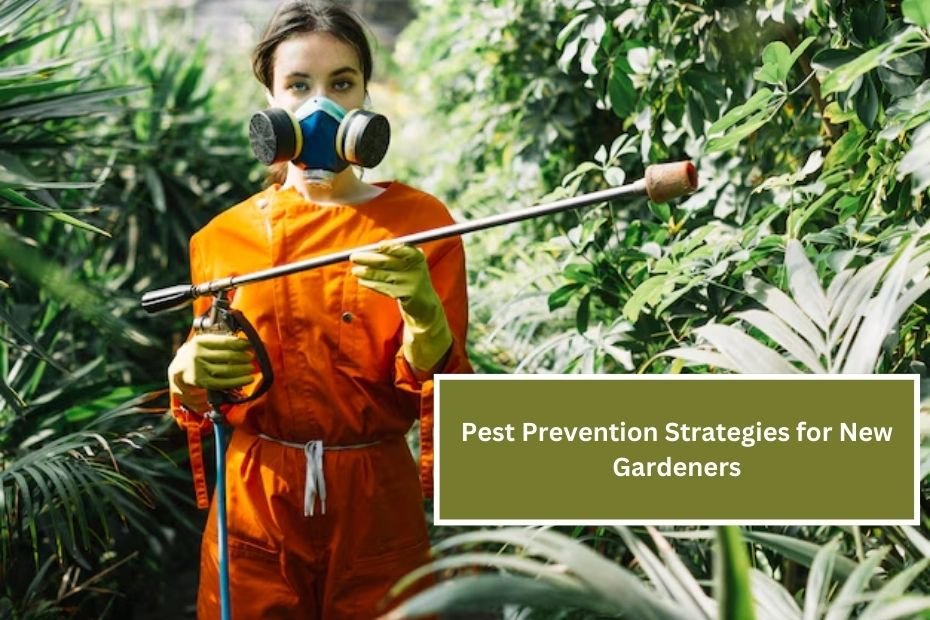Gardening can be a rewarding and relaxing hobby, but one of the biggest challenges for new gardeners is dealing with pests. Whether you’re growing vegetables, fruits, or flowers, unwanted insects and animals can wreak havoc on your plants. Understanding how to prevent pests is essential for maintaining a healthy garden. This article provides various strategies to help new gardeners protect their plants and enjoy a thriving garden.
Understanding Garden Pests
Before diving into prevention strategies, it’s important to understand the types of pests you might encounter in your garden. Pests can be classified into three main categories:
- Insects: This includes aphids, caterpillars, beetles, and whiteflies. They can damage plants by feeding on leaves, stems, and roots.
- Weeds: Although not insects, weeds compete with your plants for nutrients, water, and sunlight, stunting their growth.
- Animals: Larger pests like rabbits, deer, and squirrels can also damage your garden by eating plants or digging in the soil.
Identifying the specific pests in your garden will help you choose the most effective prevention strategies.
Prevention Strategies
1. Choose Pest-Resistant Plants
One of the best ways to prevent pests is to select plants that are naturally resistant to them. Many flowers and vegetables are bred to withstand certain insects and diseases. For example, marigolds are known to repel nematodes and aphids, while basil can deter flies and mosquitoes. Researching pest-resistant varieties will give your garden a better chance of thriving without chemical treatments.
2. Practice Crop Rotation
Crop rotation is the practice of changing the location of your plants each growing season. This prevents pests and diseases from becoming established in your garden soil. For instance, if you planted tomatoes in one area this year, choose a different spot for them next year. This strategy disrupts the life cycle of pests that target specific plants, reducing their population.
3. Maintain Healthy Soil
Healthy soil is the foundation of a successful garden. Well-nourished plants are more resilient to pests and diseases. Here are some tips for maintaining healthy soil:
- Add Organic Matter: Incorporate compost or well-rotted manure into your soil. This improves soil structure and adds nutrients.
- Mulch: Apply a layer of mulch around your plants to retain moisture, suppress weeds, and improve soil health as it breaks down.
- Soil Testing: Consider testing your soil to determine its nutrient levels and pH. This information can help you amend your soil appropriately.
4. Monitor Your Garden Regularly
Regularly checking your garden for signs of pests can help you catch problems early. Spend time each week inspecting your plants for any unusual signs, such as:
- Discoloration: Yellowing or wilting leaves may indicate pest damage or disease.
- Webbing: Spiders or spider mites can leave webbing on plants, signaling a potential issue.
- Bites and Holes: Look for holes in leaves, which may indicate insect feeding.
5. Encourage Beneficial Insects
Not all insects are harmful; some are incredibly beneficial for your garden. Ladybugs, lacewings, and predatory wasps can help control pest populations by feeding on aphids and other garden pests. To attract these beneficial insects, you can:
- Plant Diversity: Include a variety of plants that bloom at different times to provide food and habitat for beneficial insects.
- Avoid Chemical Pesticides: Many chemical pesticides can harm beneficial insects. Opt for organic or natural alternatives instead.
6. Use Physical Barriers
Physical barriers can effectively keep pests away from your plants. Consider using the following methods:
- Row Covers: Lightweight fabric row covers can shield your plants from flying insects while still allowing sunlight and water to reach them.
- Netting: Use netting to protect fruits and vegetables from birds and larger animals.
- Fences: A simple fence can deter rabbits, deer, and other larger pests from entering your garden.
7. Implement Companion Planting
Companion planting is the practice of growing different plants together to deter pests or enhance growth. Some beneficial combinations include:
- Tomatoes and Basil: Basil can repel tomato hornworms and improve the flavor of tomatoes.
- Carrots and Onions: Onions can deter carrot flies, while carrots can help improve onion growth.
Researching compatible plants can help you create a more resilient garden.
8. Natural Repellents
Many natural substances can repel pests without harming your plants or beneficial insects. Here are a few options:
- Garlic Spray: A homemade garlic spray can deter various pests. Blend garlic cloves with water, strain, and spray on your plants.
- Neem Oil: Derived from the neem tree, neem oil is a natural insecticide that disrupts the life cycle of many pests.
- Soap Spray: A diluted soap spray can help control soft-bodied insects like aphids. Mix a few drops of dish soap with water and spray on affected plants.
9. Water Wisely
Overwatering can create a perfect environment for pests and diseases. Ensure your garden has proper drainage and only water when necessary. Water in the early morning to allow plants to dry during the day, which can help prevent fungal diseases.
10. Clean Your Garden
Keeping your garden clean is vital for pest prevention. Regularly remove debris, dead leaves, and spent plants, as these can harbor pests and diseases. Maintaining a tidy garden will reduce hiding places for unwanted pests.
Conclusion
Preventing pests in your garden requires a combination of strategies and a proactive approach. By selecting pest-resistant plants, practicing crop rotation, maintaining healthy soil, monitoring your garden, and utilizing beneficial insects, you can create an environment that discourages pests. Implementing physical barriers, companion planting, and natural repellents will further enhance your pest prevention efforts. Remember, a clean and well-maintained garden is key to keeping pests at bay.
Gardening is a journey filled with learning and experimentation. Don’t be discouraged by pests; instead, view them as an opportunity to grow your gardening knowledge. With these strategies, new gardeners can enjoy a beautiful and thriving garden, free from the frustrations of pest problems.

